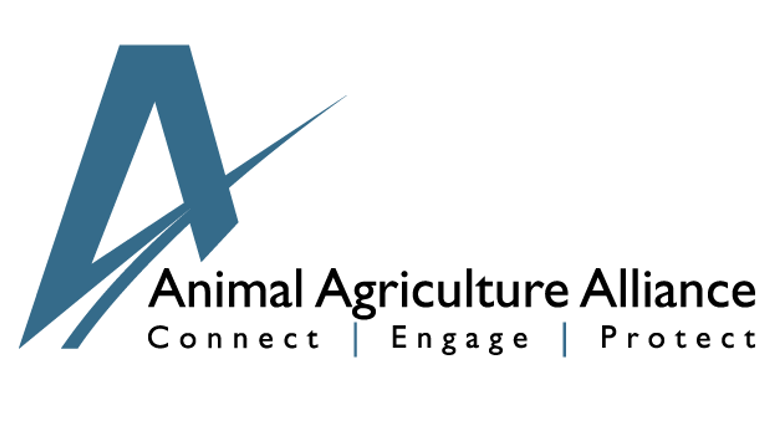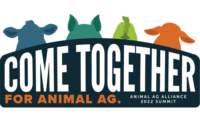Animal Agriculture Alliance urges industry to prepare for 2024 activism
Alliance releases reports from four prominent animal-rights extremist conferences held throughout 2023.

Courtesy of Animal Agriculture Alliance
The Animal Agriculture Alliance has concluded the release of reports from four prominent animal-rights extremist conferences held throughout 2023. The conferences included: Direct Action Everywhere’s Animal Liberation Conference, The Animal and Vegan Advocacy Summit, Humane Society of the United States’ Taking Action for Animals Conference and Animal Legal Defense Fund’s Animal Law Conference. The Animal Agriculture Alliance also released a report from The Reducetarian Summit.
Key discussions among speakers at these conferences included: a need for increased “investigations” and “open rescues” conducted at farms and processing facilities; calls for animal rights extremists to become more engaged politically and in the legislative process; strategies to pressure restaurant, retail and foodservice brands to reduce their sourcing of meat, dairy, poultry, eggs and seafood; and ways the animal rights movement can tap into other key issues to gain attention such as public health and climate change.
“Monitoring the strategies and tactics of the animal rights movement, including through our release of conference reports, allows Alliance members and the broader agriculture community – from farm to fork – to be aware of how these organizations are becoming increasingly aggressive in their efforts to take meat, poultry, dairy, eggs, and seafood off of consumers’ plates,” said Hannah Thompson-Weeman, alliance president and CEO. “I hope that everyone involved in raising, processing, and retailing animal protein will take the opportunity to review the main themes of these reports and implement measures to safeguard their livelihoods.”
Direct Action Everywhere’s Animal Liberation Conference primarily focused on its “right to rescue” campaign, as DXE has been advocating for the legal right to conduct “open rescues,” which entail entering farms and plants without permission and taking livestock and poultry. DXE extremist Alicia Santurio, who faced trial this year in charges stemming from one such incident, says DXE’s version of “open rescue” is, “[W]e do go into these places of violence and if we see a sick or injured animal that really needs us, those are the ones we rescue, but I don’t think that’s the only reason you have to rescue an animal.” Speakers at the event made their viewpoints of animal agriculture clear as Erin Wing, Animal Outlook’s director of investigations, claimed, “Animal agriculture is a complex machine refined over centuries and designed to torture and destroy all of the living beings within it.”
The decision for the Supreme Court to uphold California’s Proposition 12 was a key focus at several conferences, including the Animal and Vegan Advocacy Summit and the Humane Society of the United States’ TAFA Conference. Both conferences emphasized the recent “victory” and its implications for the animal rights movement. Kate Brindle, HSUS, said, “The court’s decision… not only upheld Proposition 12 and laws like it… it essentially gave a judicial green light so that we can keep working in the legislatures to free animals from suffering and extreme confinement.” The Ending Agricultural Trade Suppression Act was also denounced as “the biggest threat…ever seen to animal protection.” The Animal Agriculture Alliance expects to see more pressure on this proposed legislation in 2024 as several animal rights supporters, including speakers at the Animal Legal Defense Fund’s Animal Law Conference, have called it a “disaster for farmed animals.”
Several conferences also touched on their strategies to continue pressuring restaurant, retail and foodservice brands to reduce their sourcing of meat, dairy, poultry, eggs and seafood. Josh Bisig with ProVeg, an organization focused on “food system change,” said, “Our mission is to replace 50% of animal products globally with plant-based and cultivated foods by 2040.” It was also stated that creating change at the food brand level was an effective way to force change at the farm level. Danielle Melgar, U.S. PIRG, shared an example: “We saw an opportunity to instead turn to a corporate campaign approach, so that we could get major restaurant chains to make commitments to purchasing meat that was raised without the routine use of antibiotics. This would then change what their suppliers are doing.”
Animal rights groups have been using the coattails of issues of significant public interest such as climate change, public health and social justice to reach wider audiences. David Meyer, Food Systems Innovations, puts it this way: “What is it about this climate crisis that is actually a huge opportunity for the animals? Well, it’s a new reason to not eat animals, but this one can’t be ignored.” Brian Kateman, Reducetarian Foundation, said, “We are in a room where everybody agrees that we must end factory farming and we have to reduce the size of consumption of animal products. We don’t have to agree on everything in order to make progress on that one thing.”
All 2023 animal rights conference reports, which include accounts of speaker presentations and general observations, are available to Animal Agriculture Alliance members in the Resource Center on the alliance website. The website also includes reports from previous years’ animal rights conferences. For all other inquiries, contact Emily Ellis, manager, communications and content, at eellis@animalagalliance.org.
Source: Animal Agriculture Alliance
Looking for a reprint of this article?
From high-res PDFs to custom plaques, order your copy today!




